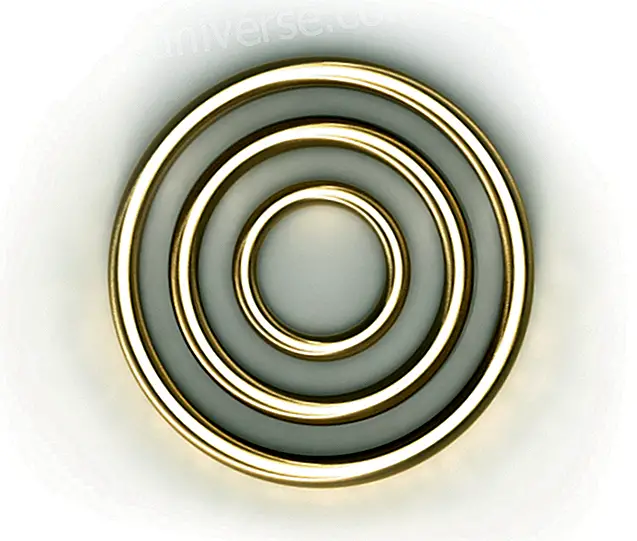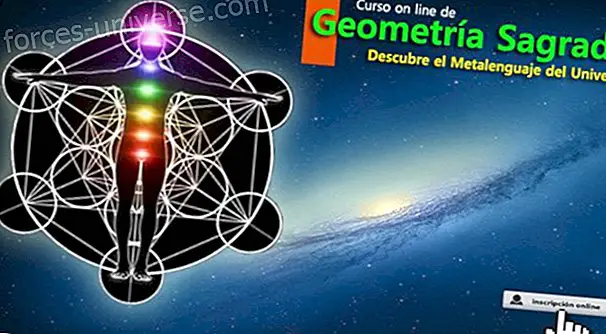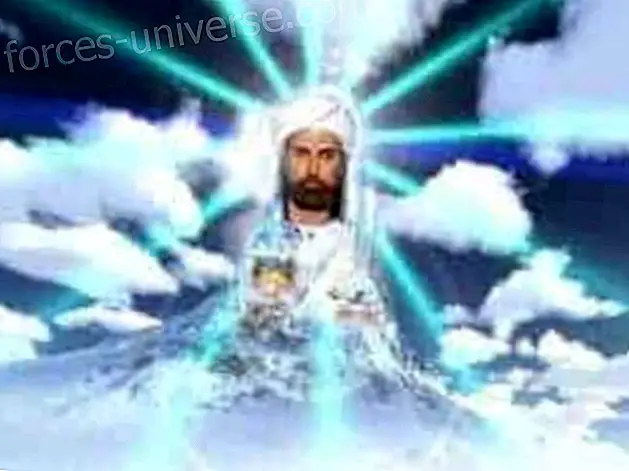
The path of faith is the path of believers in today's major monotheistic religions, such as Judaism, Christianity and Islam. Religions that have their origins in the original alliance of the Hebrew patriarch, Abraham, with God.
These religions believe in a unique creator God of the universe, revealed to men through their prophets. The interpretation of his sacred writings has generated in each one of them different congregations, which makes it difficult to summarize the principles that constitute the basis of their faith and make the issuance of any opinion in this regard a rough road. However, I will assume the risk that this implies, advancing my apologies to their believers for any errors or omissions in my interpretations.
Below I include some dogmas, principles and beliefs that in my opinion form part of the faith base of each of these religions.
Judaism
The following is a very brief description of the 13 principles of Maimonides' faith, which for many Jews synthesize the essential beliefs of Judaism:
- God exists and has always existed and is the cause of everything that exists.
- God is one and only.
- God is spirit and cannot be represented in any way or affected by anything that affects the material.
- God is eternal. It is the first and last.
- Only God should be the object of worship and only to him should we direct our prayers.
- God reveals himself through the prophets and everything they have said is true.
- Moses was the greatest of all the prophets.
- The law, as the Jews possess it, was given by God to Moses.
- The law will not be replaced or modified by God or by men.
- God knows all the actions and all the thoughts of men.
- God rewards those who keep his commandments and punishes those who transgress them.
- God will send the messiah announced by the prophets.
- God will cause the dead to return to life again in the fixed time.
Christianity
Following is a list of Catholic dogmas about Jesus Christ:
- "Jesus Christ is the true God and Son of God by essence . "
- «Jesus has two natures that are not transformed or mixed» : Jesus is of a human and divine nature.
- "Each of the natures in Christ has his own physical will and his own physical operation, " both are indivisible, inseparable and unmistakable.
- «Jesus Christ, besides Man is the natural Son of God» : The heavenly Father sent his Son Jesus Christ to men.
- "Christ sacrificed himself on the cross as a true and proper sacrifice" : By his human nature he was a priest and offering and by his Divine nature he received the sacrifice.
- Christ rescued us and reconciled with God through the sacrifice of his death on the cross : Christ sacrificed himself before the Father to get man eternal forgiveness.
- On the third day after his death, Christ rose gloriously from the dead.
- Christ went up in body and soul to heaven and is seated at the right hand of God the Father.
Here are three of the fundamental dogmas of the Protestant Church:
- Sola Fide (Faith Only): No man is justified by the works of the law, but through faith in Jesus Christ.
- Sola Scriptura (Scripture Only) and its free interpretation: The Bible is the only rule of faith and the only source of the revelation of the doctrinal and moral truth of God and can be interpreted by each believer by inspiration of the Holy Spirit.
- The Church is invisible: Jesus said: Because where two or three are gathered in my name, there I am in their midst .
Some quotes from the New Testament, sacred writing of the Christian faith.
- Jesus said to his disciples: ` ` All that you ask in prayer, believing, you will receive.
- Faith purifies the hearts of unbelievers in Jesus.
- `` Jesus Christ forgives sins and sanctifies by faith. ''
- We have freedom and access to God with confidence, through faith in Jesus Christ .
- `` Christ lives in our hearts through faith. ''
- You are all children of God through faith in Christ Jesus s .
- Faith, if it has no works, is dead in itself.
- Faith is a divine gift through the Holy Spirit.
- The end of your faith is the salvation of your souls.
Catholicism
Below is a list of some of the dogmas on which the Catholic Church is based, specifically related to God, the Pope and the Church.
- The idea of God is not innate, but we can know him through his work.
- "The existence of God is not only an object of knowledge through natural reason, but also an object of supernatural faith."
- "There is only one God."
- God is eternal, "has neither beginning nor end."
- "In God there are three divine persons: Father, Son and Holy Spirit and they all have the divine essence."
- «The Church was founded by God and Man Jesus Christ».
- "Christ appointed the Apostle Saint Peter as first among the Apostles, as the visible head of the whole Church" and personally gave him the primacy over her: The Roman Pontiff is the successor of Saint Peter as primacy over the whole Church.
- "The Pope has the full and supreme power over the whole Church in matters of faith, customs, discipline and government . "
- "The Pope is infallible whenever he pronounces" ex cathedra . " Ex cathedra: The Pope speaks as Pastor and Teacher to all the faithful, proclaiming that the doctrine is final.
- «The Church is infallible when it makes definition in matters of faith and customs» : Whenever the Pope “ex cathedra” or the Episcopate in full in the Ecumenical Council.

Islam
The five pillars of Islam:
- Profession or Testimony of faith: There is no more God with the right to be worshiped than Allah and Muhammad is his prophet.
- Prayer or ritual prayer: Five times a day at certain times.
- Alms or Social Contribution: Allocate a percentage of assets for the poor and needy.
- Fasting in the month of Ramadan: Refrain from eating, drinking and having sex from dawn to sunset.
- Pilgrimage to Mecca: At least once in a lifetime, if you have the resources to do so.
Here are some quotes from the holy writing of the Quran, about God and the faith of Islam.
- "True faith is to worship nothing except God . "
- "Faith is self-submission and absolute submission to God."
- "God is close to those who have faith."
- "He who has faith in God has faith in his envoys."
- "God will give faith if he finds willingness to understand the truth."
- «No one, not even a prophet, can transmit the faith to another person. Only God can do it ».
- "Faith is humility and awareness of God."
- "Faith is the intimate conviction of the unity and uniqueness of God."
- "Faith has no spiritual value if it is not born of authentic internal illumination."
- "Only God can judge someone's faith, because only he has access to his heart."
- "Without good works you don't have true faith."
- "Faith implies believing in the resurrection, in the final judgment and in life after death."
- «Reaching faith leads to eternal paradise».
- "Faith leads to peace of mind and peace."

How we move on the path of faith
The word faith comes from the Latin «fides» (loyalty) and we understand it as «being sure that something is true, without it being proven or proven» . On the path of faith, this means the absolute certainty that there is a God who creates everything that exists, that his word is the truth that we have always sought and that the faith we have in him is a gift he has given us to find him.
I think that the door that opens the way of faith is unconditional love for God. Some think that it is not only love that can lead us along this path but also the fear of their anger, which is manifested in some passages of the sacred scriptures addressed to those infidels who do not fulfill their precepts. Instead of love or fear of God I prefer to speak of respect, either for love or fear.
At the beginning of this path we have the feeling that there is something far superior to us that contains us and whose omnipresence we cannot stop feeling. If we do not doubt that this higher being really exists, that initial feeling of "I believe" becomes "I trust", in which we are not only sure that this higher being exists, but we also have the certainty that it is of our side and that we can count on him when we need him.
As we continue to advance in our confidence in that higher being, the "I trust" becomes the desired faith, which is a feeling of trust and absolute dedication to the will of God.
Obstacles on the path of faith
The main obstacle on this path is the doubt that there really is a supreme being. If this occurs, it is convenient to explore the path of knowledge, whose gateway is precisely doubt.
Another obstacle that prevents us from moving forward is distrust, which arises when something happens to us that we believe that the Lord could avoid or when we do not achieve something that we believe he could grant us. If we fail to overcome distrust, we must take one of the other paths to continue our search.
The last obstacle we must overcome is the fear that God will not welcome us in his glory for feeling that we do not respect him enough to deserve his mercy. If we do not feel that fear, we will find the answers to all our questions and the last end of our search: We will meet God.

________
References
- 13 principles of faith according to Maim nides . Available at: https://www.masuah.org/
- History of the Religions of Carlos Cid and Manuel Riu . Optimal editorial.
- Encyclopedia of Beliefs and Religions of Jorge Blaschek. Editions Robinbook and Intermediate Editors.
- What, how many and what are the dogmas of the Catholic Church? Available at: http://es.catholic.net/
- The dogmas Available at: http://www.liturgiacatolica.org/
- Three Dogmas of Protestantism, by Gerardo Cartagena Crespo. Available at: https://oasisdefeapologetica.blogspot.com/
- New Testament Reina-Valera version. Updated. Editorial Mundo Hispano.
- The Five Pillars of Islam . Available at: http://www.juntadeandalucia.es/
- The Message of the Qur'an of Muhammad Asad . Translation Abdurrasak Pérez. Islamic Board Edition, Documentation and Publications Center.
________
Author: Juan José Sequera, author of the Hermandadblanca.org family






